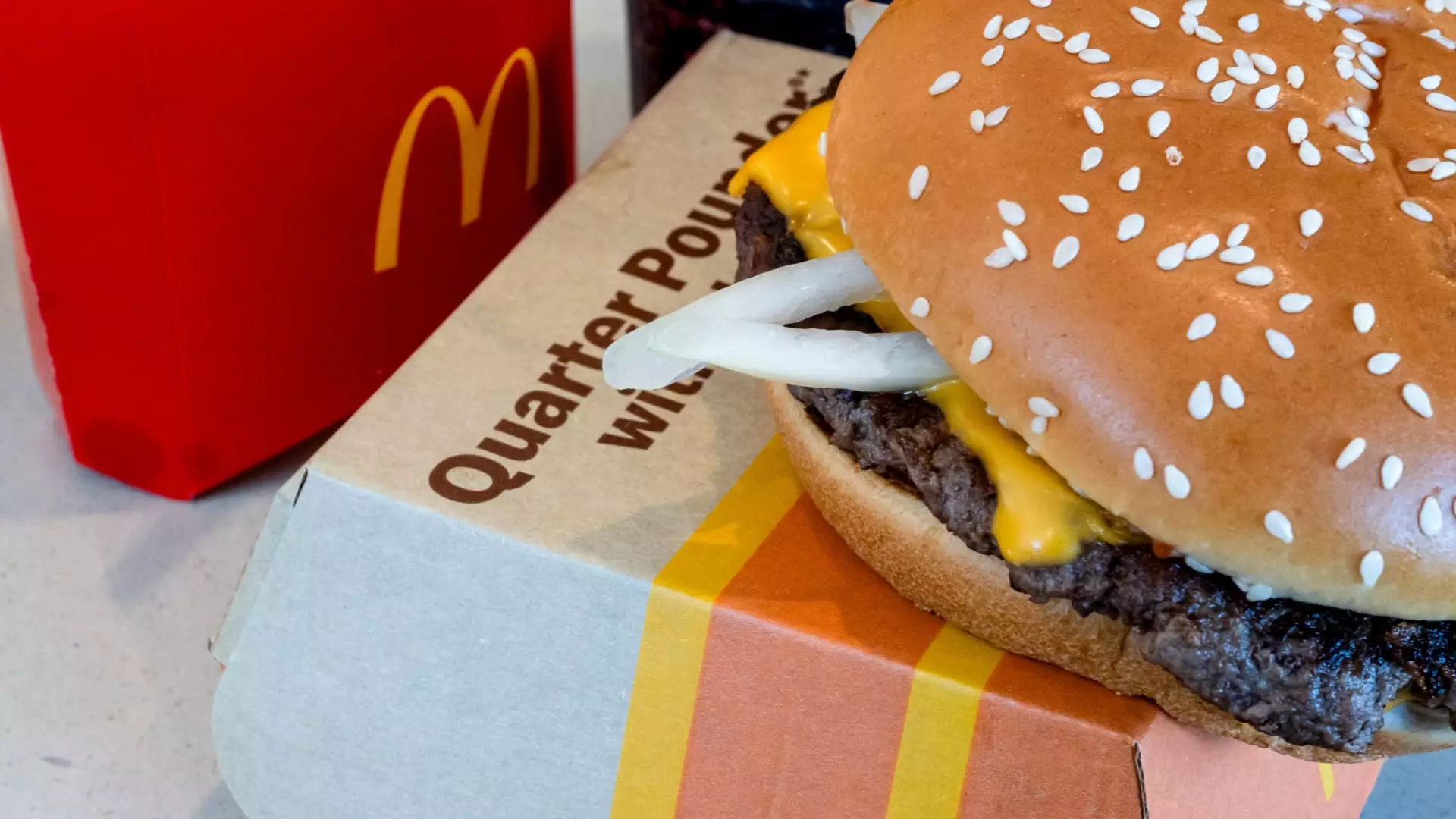The recent E. coli outbreak linked to McDonald’s Quarter Pounders has highlighted significant food safety challenges and their repercussions on public health, consumer confidence, and corporate accountability. As investigations continue, the Centers for Disease Control and Prevention (CDC) has confirmed 75 cases across 13 states, with a notable 22 hospitalizations and one reported death in Colorado—a stark reminder of the potential dangers that can arise from contaminated food sources.
The spread of E. coli often leads to underreported cases due to the asymptomatic recovery of many individuals; underlining that the CDC’s reported figures may considerably underestimate the outbreak’s true reach. With ages of diagnosed individuals ranging from 13 to 88, it raises concerns about vulnerable populations, particularly older adults and those with weakened immune systems. The CDC’s acknowledgment that many patients may not test for E. coli due to mild symptoms further complicates the tracking of such outbreaks.
In examining the corporate response, one must note McDonald’s initial reluctance to comment amid growing scrutiny. The removal of slivered onions from their supply chain points towards a proactive approach to mitigate further cases, but the delay in such action is naturally subject to criticism. As the primary supplier, Taylor Farms’ recall of several onion products for potential contamination has underscored the interconnectedness of food supply chains and the pitfalls of food safety.
Almost immediately following the CDC’s findings, McDonald’s stock experienced a 2% dip, with a total decrease of 6% since the outbreak was initially publicized. This rapid market reaction exhibits not only the immediacy of financial consequences tied to food safety infractions but also a growing consumer awareness and concern regarding foodborne pathogens. Despite a calculated corporate strategy that encompasses value meals in response to sluggish sales earlier in the year, the aftermath of a health scare poses complex challenges in regaining the consumer’s trust.
Currently, nearly 20% of McDonald’s U.S. locations have ceased serving Quarter Pounders, revealing a significant operational shift aimed at safeguarding public health. However, the restaurant chain maintains that it is too early to assess the long-term impact of the crisis on customer traffic. This hesitancy may reflect a broader concern about market volatility and consumer sentiment, particularly as the company prepares for an upcoming third-quarter earnings report, which is critical for shareholders.
Historically, E. coli outbreaks have strained fast-food chains and disrupted business operations. The outbreak linked to Wendy’s two years ago serves as a reference point for understanding potential brand recovery; while immediate impacts can be severe, the long-term implications may be manageable if addressed effectively. Experts suggest that maintaining transparent communication and reinforcing food safety measures are crucial steps for McDonald’s to mitigate brand damage and ensure consumer loyalty.
To maintain its standing in the fast-food industry, McDonald’s must act decisively in both rectifying current issues and preempting future risks. Reassuring customers of the safety of its menu items will require more than promise; it demands rigorous safety protocols and supplier scrutiny. The organization’s ability to emerge from this incident unscathed will depend largely on its response mechanisms and consumer outreach strategies in the coming months.
The current situation serves as a harsh reminder of the vulnerabilities inherent in food safety and supply chains. Customers expect their fast food to be not only convenient and affordable but also safe to eat. As the investigation of the outbreak continues, McDonald’s and similar corporations must consider the implications of their practices—not only for public health but for their reputations and future successes.
In essence, the McDonald’s E. coli outbreak is more than a series of unfortunate events; it is a compelling case study on the importance of accountability in the food industry. The way forward lies in a commitment to transparency, investment in food safety, and a renewed emphasis on consumer welfare. As McDonald’s navigates this crisis, real change must come from understanding the lessons it presents, with the ultimate goal of protecting the health of its patrons.

